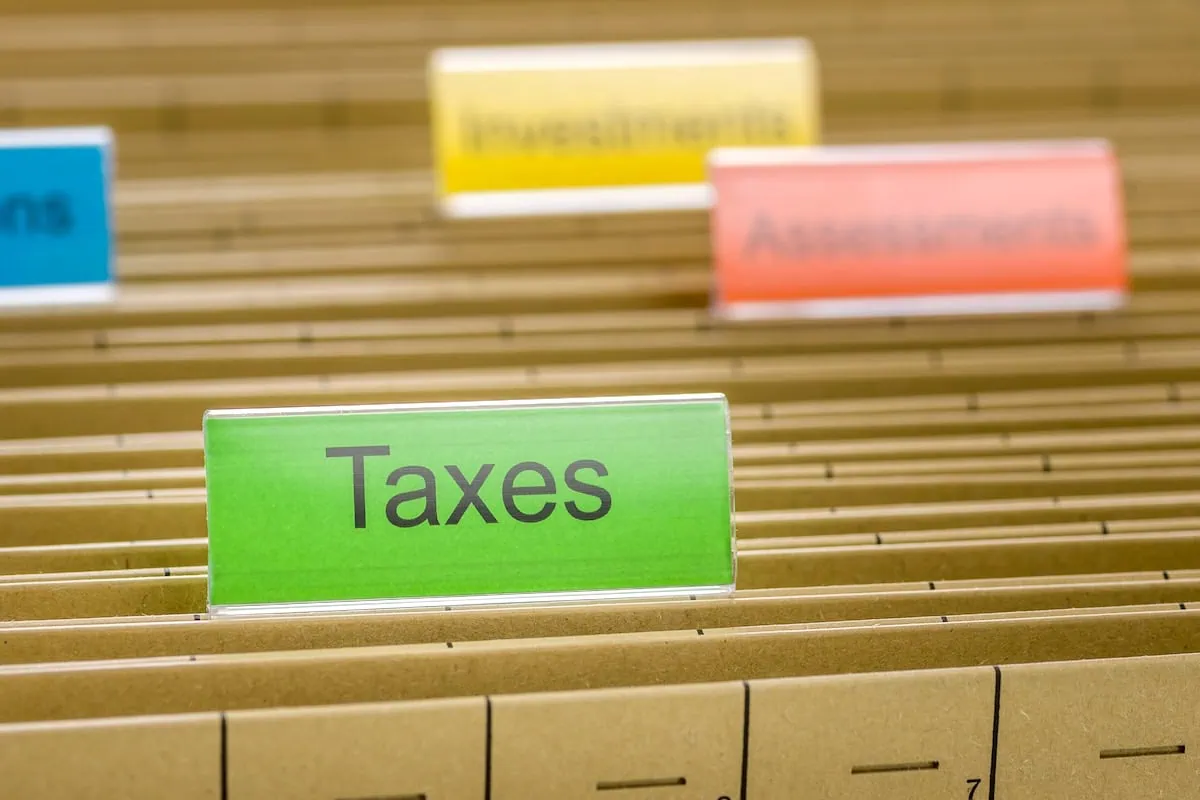“Santa Claus: Kindly old elf, or CIA spook?” So mused Calvin of Calvin and Hobbes about old Kris Kringle’s power to know whether children have been bad or good.
Well, he’s not the only one with that omniscient power—the IRS does, too.
While we provide the tax man with information about our finances every year, the agency still has to know whether you’re not just making it up as you go along. And while it doesn’t have little elves watching your every move, it does have some (fairly advanced) monitoring methods.
Here’s how the IRS tracks your financial activity. Let’s discuss some of the ways the IRS tracks financial activity. Understanding the IRS’s tracking methods can help you stay compliant and avoid being audited.
What Happens If You Inaccurately Report Income?

In short: You want to submit accurate claims to the IRS—that is, report all of your income, claim only deductions and/or credits you actually qualify for, and so on—because not doing so could result in underpayment, which could trigger penalties.
One of the most common types of penalty is the substantial understatement of income tax penalty, which amounts to 20% of the portion of tax underpayment. For individual tax returns, the IRS considers it a substantial understatement if either applies:
- You understate your tax liability by 10% of the tax that should be shown on your tax return
- You understate your tax return by $5,000 or more
If both situations are true, whichever is greater applies when determining the penalty.
Two other related fines are the negligence and disregard of the rules or regulations penalties. The first category involves not making “a reasonable attempt to follow the tax laws when you prepare your tax return.” The second occurs when you have “carelessly, recklessly, or intentionally ignored tax rules or regulations.”
These are also 20% penalties, with the percentage applied to the portion of tax underpayment attributable to negligence or disregard.
The IRS also charges interest on penalties, which increases how much a person owes until the balance is paid in full. The interest rates charged on penalties may change quarterly.
Do you want to get serious about saving and planning for retirement? Sign up for Retire With Riley, Young and the Invested’s free retirement planning newsletter.
IRS Strategies to Spot Financial Activity

The IRS tracks your financial activity in several ways, some of which are well-known and pretty transparent, while others are a bit more surprising.
So a word to the wise: Always make sure you’re thoroughly tracking your income and reporting correct numbers to the IRS year in and year out.
Here are a few of the ways the IRS keeps abreast of your financial situation.
1. Information Sent by Employers

Let’s start with the method you’d most likely either expect or already know: a matching system.
The government’s Information Returns Processing System (IRPS) analyzes whether information sent by employers aligns with what’s reported on individuals’ tax returns.
For example, an employer reports an employee’s wages on Form W-2. The IRPS determines whether the amount on the W-2 matches what the worker reported when they filed their taxes. So if an employer says they paid a employee $80,000, but the employee claims they only earned $50,000, that will throw up a red flag.
In addition to W-2s, IRPS also uses information from Form 1099s (non-employee compensation, dividends, interest, and other income) and Schedule K-1s (income from partnerships, trusts, estates, and more).
So when you’re preparing your taxes, double-check that the numbers you’re filling out match those provided by employers, financial institutions, and other entities that sent you your various tax forms.
Related: Forms W-2 vs. W-4 vs W-9: What Are The Differences?
2. Third-Party Payment Apps

While third-party payment apps such as PayPal, Venmo, and CashApp are often used socially, freelancers are frequently paid through these apps, too. And these apps are reporting information to the IRS.
Self-employed workers have always been required to report all of their income, but for years, only those who netted $20,000 or more through payment apps received a Form 1099-K. For those who made less, the absence of a tax form from payment apps might have simply implied those payments didn’t need to be reported.
However, in 2021, Congress passed rules that would lower the minimum threshold across three years—down to $5,000 in the 2024 tax year, $2,500 in the 2025 tax year, and just $600 in the 2026 tax year. (And some states lowered the reporting requirement to $600 before 2026.)
One noteworthy consequence of this is that some people might receive a 1099-K for money they received that wasn’t part of a business transaction. For instance, you might pay for big group expenses for your friends, then have your friends pay you back via Venmo. If that’s the case, you might want to ask the app provider for an amended 1099-K. The IRS receives 1099-Ks from payment app companies, and that includes amended forms, so they’ll be able to see you’re not underreporting income.
If you use the same apps for both business and personal transactions, carefully track which transactions are and are not related to your business. But it might be wiser to simply separate which apps you use for each purpose. For instance, you may use PayPal for business and Venmo for social transactions. is and isn’t business. It may be wise to separate which apps you use for what. Another option is to have separate accounts on the same platform.
Related: What’s the Best Tax Bracket for a Roth IRA Conversion?
3. Cryptocurrency Exchange Reporting

The IRS requires people to report transactions involving digital assets, such as cryptocurrency and nonfungible tokens (NFTs), on their tax returns, because income from these assets is taxable.
On federal income tax returns, you’ll be asked “At any time during the tax year, did you: (a) receive (as a reward, award, or payment for property or services); or (b) sell, exchange, or otherwise dispose of a digital asset (or financial interest in a digital asset)?”
How does the IRS know whether you’ve answered that question truthfully?
Cryptocurrency exchanges already are required to report user transactions to the IRS to comply with the Bank Secrecy Act. However, beginning with the 2025 tax year, exchanges are also required to issue expanded 1099 forms to users and the IRS summarizing cryptocurrency trades. (Some exchanges were already issuing tax forms for high-volume traders.)
Additionally, the IRS also hires firms that can analyze blockchain data, though that’s a step the IRS likely would only take once it already suspects you’re trying to skirt reporting cryptocurrency transactions.
If Coinbase sends the IRS a form saying you enjoyed $40,000 worth of Bitcoin proceeds and you answer on your tax forms that you’ve never bought, sold, or exchanged any cryptocurrency, that will raise some eyebrows.
YATI Tip: Despite the name, “cryptocurrency” isn’t considered actual currency in the IRS’s eyes, but as property. Among other things, that means when you spend cryptocurrency, you’re actually selling it, which is a taxable event. That’s vital to remember when determining your gains and losses.
Related: How to Pass an IRA to Heirs [Without Leaving a Tax Mess]
4. Wallet-by-Wallet Crypto Tracking

Do you have multiple cryptocurrency wallets? This section will be important to you.
You previously might have used a universal cost-tracking method for your cryptocurrency that aggregated your holdings across all of your wallets. If that was the case, the cost basis used when selling crypto may have originated from any of your wallets, no matter where you sold it. And you would have calculated gains or losses with the original cost basis of all pooled assets of the same cryptocurrency.
But as of Jan. 1, 2025, the required method has switched to per-wallet cost tracking, which calculates tax basis separately for each wallet. Now, when cryptocurrency is sold, the gain or loss is calculated based only on that specific wallet’s cost basis and queue. This allows the IRS to more easily align your records with what the exchanges report, and it stops investors from manipulating their cost basis across different wallets.
Maintain detailed records of your acquisition dates, costs, and transfer history. Some people even go so far as to use crypto tax software or discuss their holdings with a professional so they don’t accidentally misreport to the IRS.
Related: How to File a Tax Extension [Postpone Your Taxes]
5. Foreign Account Compliance

If you watch enough movies, you’ll eventually see someone hide their money in a Swiss bank account. This popular plot device has probably convinced at least a few real people to store some of their funds abroad to shield it from the IRS.
But just because you keep your money in another country doesn’t mean the IRS doesn’t know about it.
The Foreign Account Tax Compliance Act (FATCA) typically requires foreign financial institutions and certain other foreign entities to report on assets held by Americans, lest they be hit with a 30% withholding tax on withholdable payments.
Done correctly, there’s nothing inherently illegal about having money in foreign accounts. Some people choose to do so to make international transactions easier or to diversify their investments. But it is illegal to try to shield money from tax consequences.
If you have more than $10,000 in foreign accounts, make sure to file a Report of Foreign Bank and Financial Accounts and consider discussing your finances with a professional.
Related: Federal Tax Brackets and Rates
6. Artificial Intelligence

The IRS now runs machine learning algorithms across massive datasets to find anything suspicious. These algos can scan bank records and digital ledgers to spot noncompliant transactions, and they can flag errors almost in real-time, making for audit responses that can occur within days.
The IRS also uses AI to examine social media. Social posts won’t necessarily be examined in a hunt for reasons to begin an audit, but they might be as part of an ongoing audit. Specifically, the IRS is looking for inconsistencies between what a person is reporting and what they’re showing on social media.
For instance, a person might post photos of their honeymoon on Instagram, showing themselves and their bride eating at expensive restaurants and staying at luxurious hotels. But if the person tried to write off the entire trip as a business expense—the hotel was their lodging in between meetings, the meals were with business prospects—the social media story and tax documentation story wouldn’t be aligned.
Related: How Can I Lower My Taxes in Retirement? 8 Proven Strategies
7. Tax-Fraud Tips

The IRS appreciates tips concerning tax fraud and will reward people who provide the agency with usable evidence. If an individual provides an accurate tip, it will pay out a mandatory award of 15% to 30% of the amount collected by the government as a result of that tip.
The IRS isn’t interested in small fish, however. As it pertains to reports about individuals, the person’s gross income for the year in question must exceed $200,000.
Note: There is also a discretionary award that can be granted if the tip is useful but doesn’t meet the conditions of the mandatory award.
Related: How Is Retirement Income Taxed?
How Do I Keep Accurate Tax Records?

Spreadsheet superfans can use them to organize their finances. You might have a spreadsheet that tracks all of your income sources and deductions. Another might track your cryptocurrency transactions. You may have additional paper and digital documents with receipts, invoices, bank statements, and more. Any time money flows in or out, you want it documented in some way.
However, at some point, even the most spreadsheet-savvy people may struggle to keep track of everything. If your finances aren’t simple, you may opt to use accounting software. For others, even software isn’t enough, so they work with a financial advisor. Depending on the financial professional you choose, they may be able to help you manage investments in the most tax-advantaged ways, accurately file your taxes with as many qualifying deductions as possible, and more.
Want to talk more about your financial goals or concerns? Our services include comprehensive financial planning, investment management, estate planning, taxes, and more! Schedule a call with Riley to discuss what you need, and what we can do for you.






![Child Tax Credit FAQs [What Every Parent Needs to Know] 24 child tax credit parents kissing baby](https://wealthup.com/wp-content/uploads/child-tax-credit-parents-kissing-baby-600x403.webp)

